Today marks the conclusion of AICS Director Marco Riccardo Rusconi’s mission, which began on February 9th in Lebanon and Syria. The mission confirmed Italy’s commitment to building peace and stability in the region.
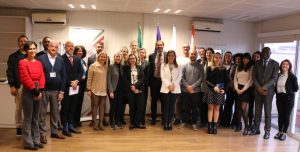 The AICS Director visited Damascus to review Italian Cooperation initiatives, where he announced the opening of a secondary accreditation office for AICS. Marco Riccardo Rusconi met with the UN Humanitarian Coordinator, the Secretary-General of the Syrian Arab Red Crescent, and representatives of Italian NGOs and the UN.
The AICS Director visited Damascus to review Italian Cooperation initiatives, where he announced the opening of a secondary accreditation office for AICS. Marco Riccardo Rusconi met with the UN Humanitarian Coordinator, the Secretary-General of the Syrian Arab Red Crescent, and representatives of Italian NGOs and the UN.
All parties emphasized the need to continue providing life-saving humanitarian assistance and addressing the protection needs of the civilian population. At the same time, there is a priority need to improve access to livelihood opportunities and basic services through actions that support economic recovery and the restoration of essential infrastructure. These efforts are also aimed at facilitating the potential voluntary, safe, and dignified return of Syrians who have left their country since the crisis began. 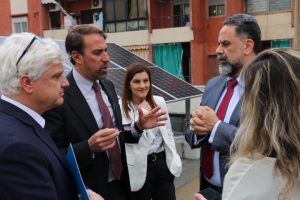
In Lebanon, Director Rusconi met with key institutional partners involved in implementing Italian Cooperation initiatives in the country, including long-standing partners of AICS Beirut.
Together with Ambassador Nicoletta Bombardiere and the Head of the AICS Beirut Office, Alessandra Piermattei, Rusconi met with the President of the Council for Development and Reconstruction (CDR) to review ongoing projects and jointly commit to accelerating and completing the initiatives agreed upon between the two countries.
The Director also met with the Minister of Social Affairs, a strategic partner for AICS’s social protection interventions, the Director-General of Education, a key contact for Italian Cooperation in the sector, representatives of the European Union Delegations for Lebanon and Syria, the UN Coordinator, and representatives of Italian civil society organizations.
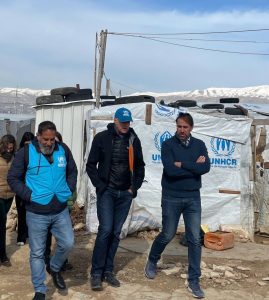 In addition to the series of important institutional meetings, field visits were also conducted, allowing direct contact with beneficiaries to assess the impact on their lives and appreciate the relevance of the interventions funded in various countries.
In addition to the series of important institutional meetings, field visits were also conducted, allowing direct contact with beneficiaries to assess the impact on their lives and appreciate the relevance of the interventions funded in various countries.
During the mission, the Director visited an agricultural cooperative in the Beqaa Valley supported by the OSC Giovanni Paolo II Foundation. The cooperative promotes sustainable and inclusive rural economic development by encouraging cooperativism and strengthening fruit and vegetable agri-food chains through product certification and the introduction of innovative production, management, and commercial practices.
The visit also included a meeting at an informal Syrian refugee camp in Zahle, where some activities are supported by UNHCR as part of Italian Cooperation funding to ensure access to health services.
Still in the Zahle area, the visit included a stop at a wastewater treatment plant, financed by Italy, to support environmental hygiene and wastewater treatment. This is the first tertiary-level treatment plant in the area, built to international standards, which has significantly contributed to reducing environmental pollution and safeguarding water resources.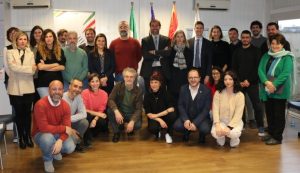
Two other symbolic sites of Italian intervention in Lebanon also welcomed the AICS Director: the National Museum of Beirut and the magnificent site of Baalbek, both restored thanks to the expertise of Italian professionals.
Before concluding his visit, Director Marco Riccardo Rusconi visited a school rehabilitated with AICS funding to UNICEF, which also provided the school with solar panels to cope with the ongoing energy crisis in the country.
The week was marked by exchanges, dialogue, and discussions that provided deeper insights into the dynamics, needs, and challenges of cooperation initiatives, as well as the tools for understanding the ongoing crises in both countries.
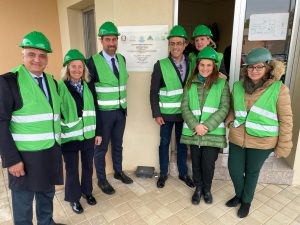 The Director concluded his intense trip by reiterating that in both countries, “efforts must be made to combine humanitarian interventions with development and resilience initiatives to foster virtuous growth paths that enable countries to involve all development actors and gradually detach themselves from external aid. In this regard, the private sector plays a crucial role, which our Cooperation intends to support through all the tools provided by Law 125/14. Another fundamental element, particularly concerning Lebanon, is the support and technical assistance to institutions to ensure that they fully carry out their mandate transparently, effectively, and in line with the global commitments of the 2030 Agenda.”
The Director concluded his intense trip by reiterating that in both countries, “efforts must be made to combine humanitarian interventions with development and resilience initiatives to foster virtuous growth paths that enable countries to involve all development actors and gradually detach themselves from external aid. In this regard, the private sector plays a crucial role, which our Cooperation intends to support through all the tools provided by Law 125/14. Another fundamental element, particularly concerning Lebanon, is the support and technical assistance to institutions to ensure that they fully carry out their mandate transparently, effectively, and in line with the global commitments of the 2030 Agenda.”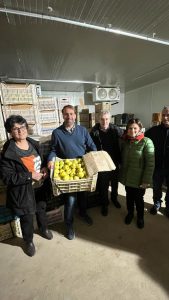
Before leaving Beirut, the AICS Director, together with Italian Ambassador Nicoletta Bombardiere and AICS Beirut Head Alessandra Piermattei, met with representatives of Italian NGOs in Lebanon. They shared ideas and experiences, evaluated the joint work carried out in the country, and discussed ways to further enhance the impact of Italian Cooperation. “Within the framework of the new AICS strategy, the contribution of NGOs as cooperation entities under Law 125 remains fundamental,” stated Director Rusconi, who emphasized that “the skills acquired and the strong reputation built over years of presence in Lebanon make Italian NGOs essential and foundational elements for the realization of cooperation projects and the continued commitment of Italy in the country.”
